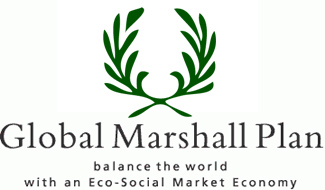Global Marshall Plan
Balance the World with an Eco-Social Market Economy

The Marshall Plan Venture Capital Fund, L.P. (“TMP”) was established in 2000 as a Delaware Limited Partnership. Along with Omer Rains, prior to her untimely death the company also had as one of its general partner’s Greta Marshall, formerly Executive Director and Investment Manager of the California Public Employees Retirement System (CalPERS). Under Greta’s guidance, CalPERS had become the world’s largest public pension fund.
Since the inception of TMP, Omer Rains has served as its Managing Member and President. Given his international business background and lifelong commitment to just and sustainable business development, TMP has created a niche that is unique in the Venture Capital community:
• Accepting the fact that helping to change the world often requires taking risk, projects are generally confined to sustainable business opportunities in lesser developed countries where financing would otherwise be unavailable.
• Money is packaged in US Dollars, Euros, Pound Sterling, Swiss Francs, Yen and/or other hard currencies in a target-specific manner only as and when needed.
• In addition to private equity, projects can and usually do also involve working with various international agencies, often located in Washington D.C., Geneva, Switzerland and/or European Union entities generally located in London, Brussels, or Strasbourg.
• Whenever institutional financing is also involved, “Sovereign Guarantees” are sought from countries in which projects are to be located.
• A condition precedent to any project is that the client or moving party be committed to providing just and sustainable business opportunities for indigenous peoples, especially women and ethnic minorities.
• All projects must have an environmental component and projects will not be undertaken unless all involved parties have a heightened sense of social and environmental awareness.
• A percentage of all TMP profit (generally 15%) is committed to humanitarian and philanthropic causes, often to promote literacy, civil rights and the prevention of disease in the developing world.

